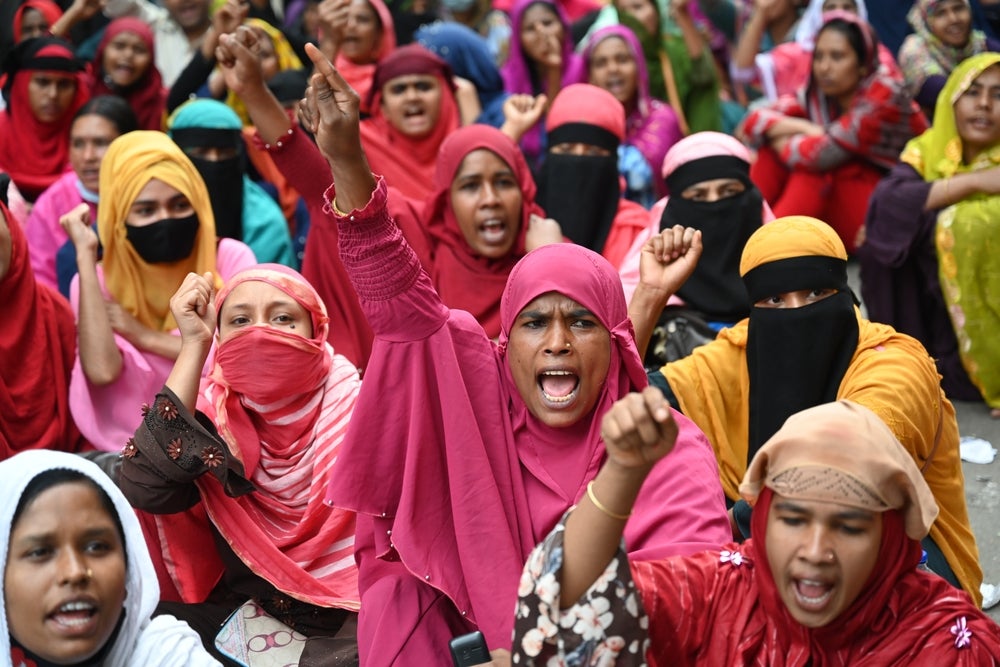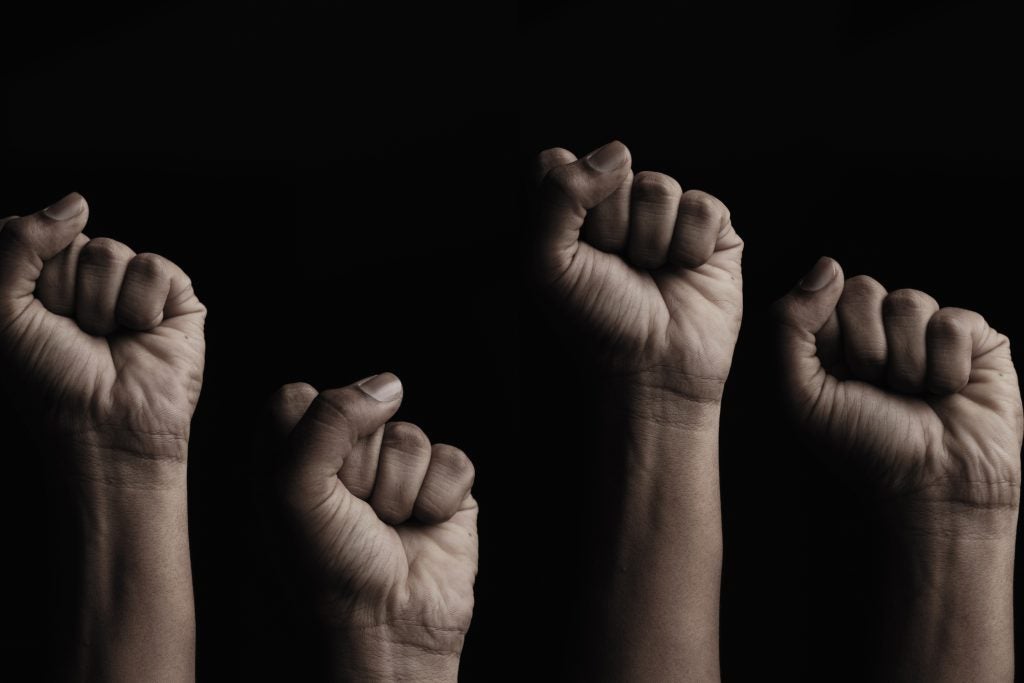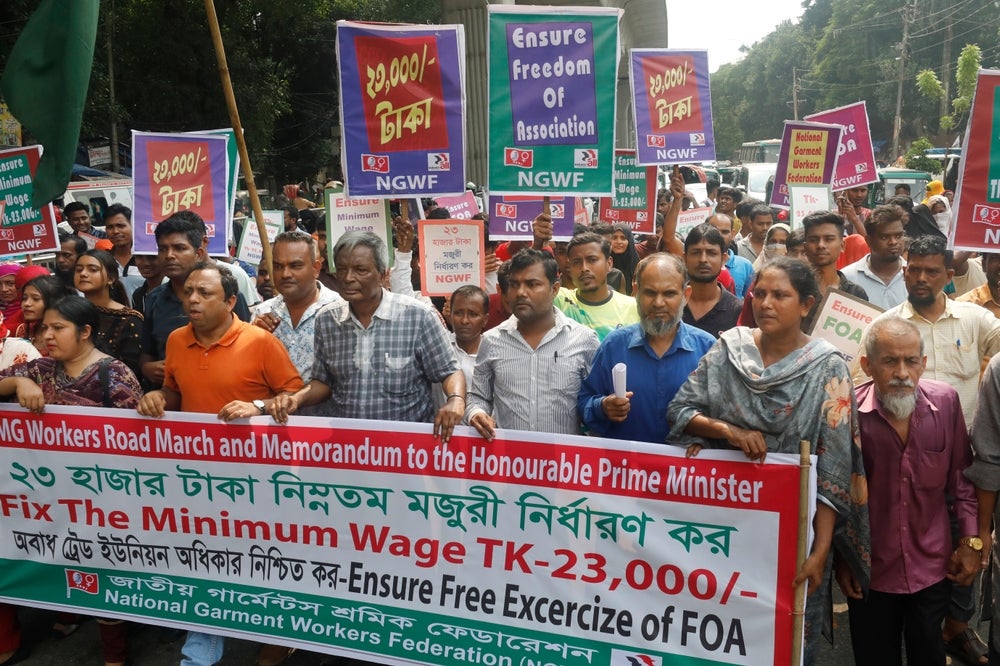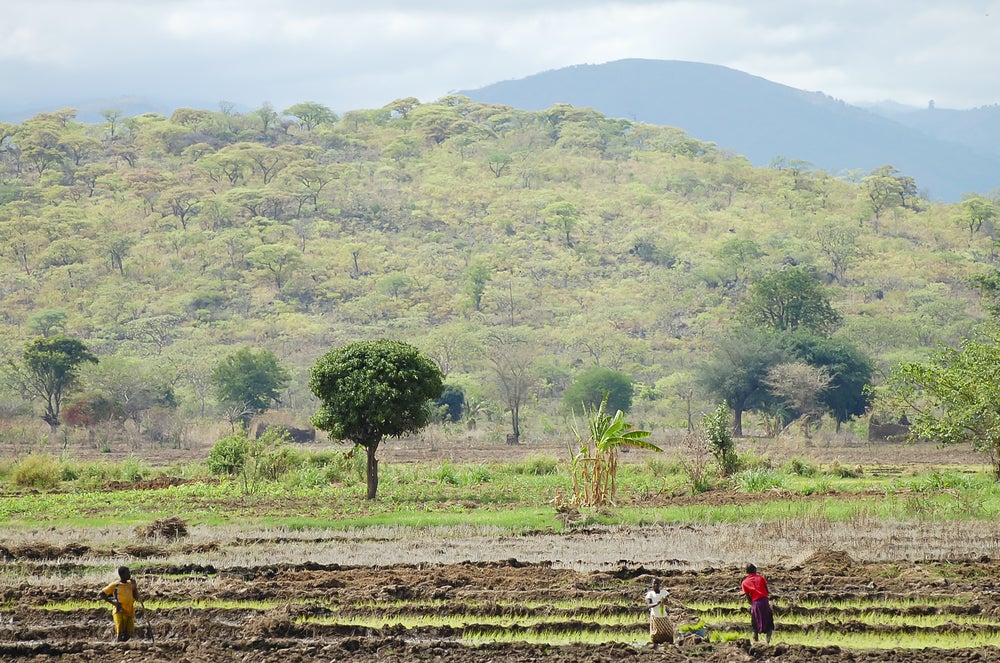Women-led union leaders are calling for a more inclusive consultation process and have reached out to allies within the Sri Lankan and global labour movements.
The unions argue that the existing consultation process lacks representation from women labour leaders and representatives from various unions, despite the fact that these decisions significantly impact women-dominated industries and sectors.
Additionally, the women-led unions announced their intention to send a letter to the International Labor Organization (ILO) in support of a complaint filed over a year ago regarding Sri Lanka's violation of the ILO convention on tripartite consultation.
Proposed labour reforms promote part-time and flexible work for women, but non-standard labour contracts lack benefits and stability. Critics argue that these laws could increase job insecurity and reduce benefits while reinforcing the notion that women are solely responsible for unpaid domestic work.
Swasthika Arulingam, the president of the Commercial and Industrial Workers Union (CIWU became the first woman to represent a labour union in the government-appointed body and was recently removed from her position with several representatives from independent unions by Minister Manusha Nanayakkara from the Sri Lanka Ministry of Labor
“Policy-making seems to have become a man’s business. Historically, women have been excluded from the National Labor Advisory Council (NLAC,) but even after one woman representative was included this time in the NLAC membership, it is strange that Minister Nanayakkara has removed the only woman representation before going ahead with new labour law reforms for women workers,” said Arulingam.
As a consequence, no female labour leader participated in the official consultation process, causing a matter of concern, particularly as several of the proposed labour reforms may disproportionately affect women workers.
Voices from women-led unions
While the new labour laws are being promoted as measures to enhance female participation in the labour force, issues have been raised about the relaxation of night-time work restrictions.
Ashila Dandeniya, the leader of the Stand-Up Movement Sri Lanka, stated: “We know that it isn’t night-time work restrictions that keep women out of the labour force; it’s in fact unpaid care work such as taking care of children, the elderly and the sick, that prevent a majority of women from accessing paid work. Women need extended maternity and paternity leave, as well as employer- and state-funded child care.”
She went on to say that if the drafters of this law allowed female unionists to take part in the decision-making process, they would have a better understanding of the actual needs of women workers.
Chamila Thushari of the Dabindu Collective expressed her concerns about the potential impact of the new labour laws on workers' wages, particularly in the garment sector, where the majority are women.
She notes that garment sector workers will be compelled to work longer hours for reduced wages, when in fact they need overtime allowances to earn a living wage, but the proposed reforms may extend the working day to 12, 16, or 18 hours without additional compensation for overtime.
Lalitha Dedduwakumara, chief organiser of the Textile Garment and Clothing Workers Union (TGCWU), highlighted the hostility towards trade unions and the right to freedom of association in the proposed labour laws.
She said: “Workers in the Free Trade Zones face retaliation when they form or join unions. Women workers face added risks of verbal and sexual harassment.
“The new laws will make unionising even more difficult. In the new reforms, the minimum number for trade union registration is proposed to increase from 7 to 100. The new labour laws also present a threat to a trade union’s right to protest, making it possible to put a worker in jail for simply speaking up against workplace injustices. We consider these barriers to unionising a violation of women’s right to freedom of association.”















